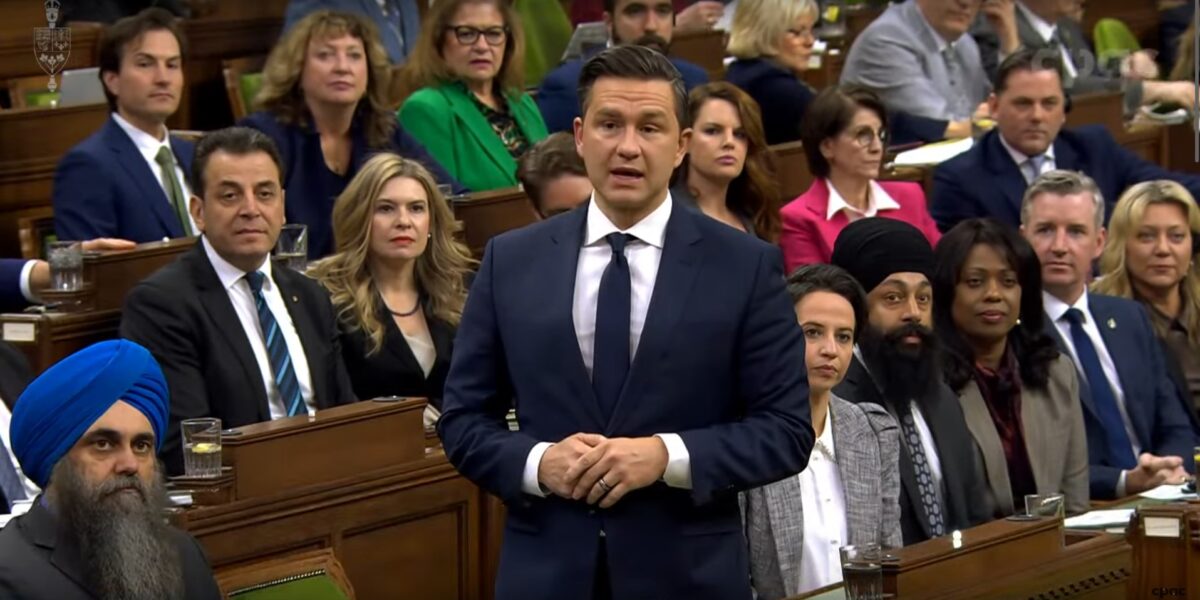If we end up with Pierre Poilievre as prime minister, it will be partly because of all the groundwork done by right-wing think tanks in distorting the public debate over taxes.
Most notably, the Fraser Institute, generously funded by wealthy interests, has been using its ample resources for decades to turn Canadians into tax-haters, to disconnect taxes in the public’s mind from all the benefits, services, programs and infrastructure that taxes provide.
Key to promoting this anti-tax agenda has been grossly exaggerating the actual tax burden on Canadians.
So, for instance, a new report from the Fraser Institute last week proclaimed that the tax bill paid by Canadians has increased by 2,705 per cent since 1961.
Now, there’s a mind-bending number. But it’s also a meaningless number, in that it fails to take into account inflation and the real increase in Canadian incomes over the past 63 years.
Once these factors are accounted for, we can calculate that, based on the institute’s own numbers, the effective tax rate Canadians pay has increased by 28 per cent since 1961.
Now, we could have a reasonable debate about whether a 28 per cent increase in the tax rate over six decades is too high. But we should start by acknowledging that government today provides a lot more benefits than it did in 1961 — most notably, universal health coverage and old age pensions — major programs that have become essential to the well-being and financial security of Canadians.
The Fraser Institute’s new report also claims that the average Canadian family pays total taxes of $46,988, which it says amounts to an average tax rate of 43 per cent
But don’t be fooled by that word “average.” In doing its calculations, the Fraser report lumps all Canadians together — including rich Canadians, whose incomes and taxes distort the picture. (Although effective tax rates on the very rich are lower than on most Canadians, they receive a disproportionately large amount of the nation’s income and so pay more tax.)
As the old joke goes: if Bill Gates walks into a bar crowded with homeless people, the average net worth might rise to, say, $500 million. This “average” could lead us to believe that the people in the bar are very prosperous when, in fact, they’re all penniless, except Bill Gates who has $130 billion.
For a more meaningful measure of the Canadian tax burden, we can turn to the Organization for Economic Co-operation and Development (OECD), which surveys its 38 member nations.
According to the OECD, in 2022, Canadians paid taxes amounting to 33.2 per cent of Canada’s Gross Domestic Product (GDP). That is actually slightly lower than the OECD average of 34 per cent, and considerably lower than the European average of 41.2 per cent. (Europeans pay higher taxes — and get far more generous social benefits.)
Pierre Poilievre has always supported lower taxes, particularly on the rich. But since becoming Conservative leader in 2022, he’s been careful to conceal this favouritism towards the rich, realizing it could hurt his new image as champion of the working class.
Hence, he hesitated for weeks before finally revealing in June that he — in step with the wealthy elite — opposed the Liberal government’s plan to increase capital gains taxes.
Poilievre promised instead to set up a “tax reform task force” aimed at reducing taxes on the poor and middle class. But such a task force would more likely become a vehicle for making the tax system even more favourable to the rich.
It all depends on who’s running it.
The next day, Poilievre gave us a hint when he strongly praised University of Calgary public finance specialist Jack Mintz as the “greatest economist in Canada.”
Like the Fraser crowd, Mintz has long vigorously advocated lower taxes on the rich.
It would be a dream come true for the Fraser Institute’s wealthy donors to have Mintz devising a completely new tax system for Canada.
This article originally appeared in the Toronto Star.



